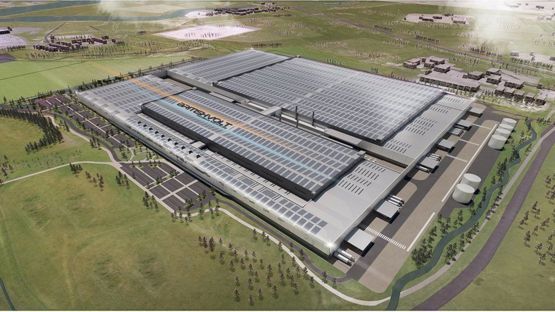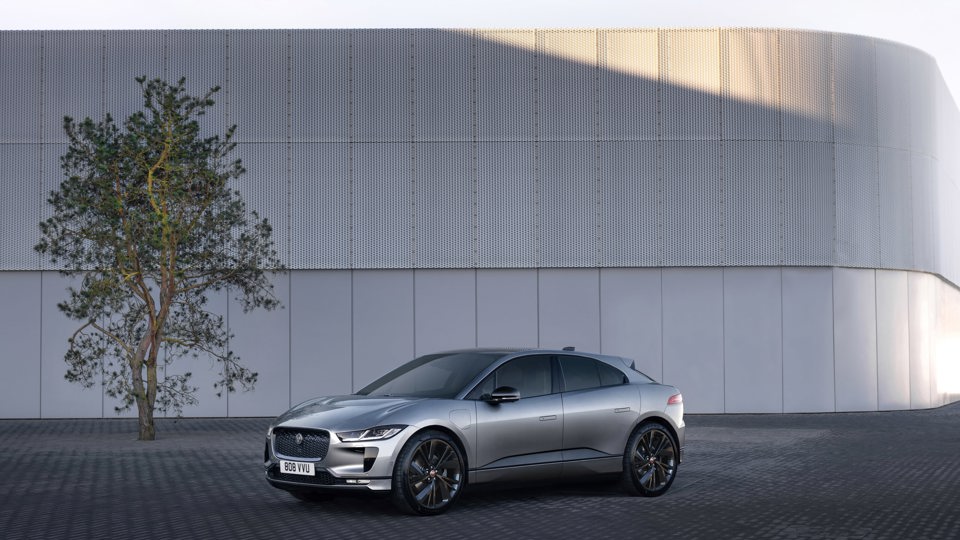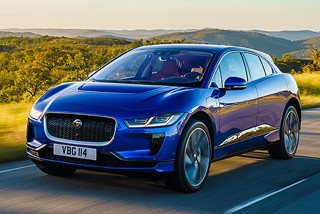Jaguar Land Rover owner Tata Group has confirmed that it will create a £4 billion electric vehicle battery gigafactory in the UK.
The new gigafactory in Somerset will supply JLR’s future battery electric models including the Range Rover, Defender, Discovery and Jaguar brands, with the potential to also supply other car manufacturers.
Production at the new gigafactory is due to start in 2026.
Jaguar Land Rover owner Tata Group has confirmed that it will create a £4 billion electric vehicle battery gigafactory in the UK.
The new gigafactory in Somerset will supply JLR’s future battery electric models including the Range Rover, Defender, Discovery and Jaguar brands, with the potential to also supply other car manufacturers.
Production at the new gigafactory is due to start in 2026.
The new gigafactory, at 40GWh, will be one of the largest in Europe and is expected to create up to 4,000 jobs directly, as well as thousands of further jobs in the wider supply chain.
The gigafactory intends to maximise its renewable energy mix, with an ambition for 100% clean power.
The plant will employ "innovative technologies" and resource efficient processes like battery recycling to recover and reuse all possible original raw materials.
The investment will be crucial to boosting the UK’s battery manufacturing capacity needed to support the electric vehicle industry in the long term.
With an initial output of 40GWh the JLR gigafactory will also provide almost half of the battery production that the Faraday Institution estimates the UK will need by 2030.
The majority of lithium-ion battery production used for electric vehicles is dominated by Chinese, Korean and Japanese manufacturers.
Tata was reported to be seeking £500 million from the UK government earlier this year to establish the gigafactory in the UK.
A report in the Financial Times said that the Indian OEM was weighing-up whether the UK or Spain would be the best base for its battery production facility and suggested that ministers had very limited time to make a decision.
Prime Minister Rishi Sunak said: “Tata Group’s multi-billion-pound investment in a new battery factory in the UK is testament to the strength of our car manufacturing industry and its skilled workers.
“With the global transition to zero emission vehicles well underway, this will help grow our economy by driving forward our lead in battery technology while creating as many as 4,000 jobs, and thousands more in the supply chain.
“We can be incredibly proud that Britain has been chosen as home to Tata Group’s first gigafactory outside India, securing our place as one of the most attractive places to build electric vehicles.”
Natarajan Chandrasekaran, chairman, Tata Sons, said the multi-billion investment further strengthens Tata Group's commitment to the UK, alongside its many companies operating here across technology, consumer, hospitality, steel, chemicals, and automotive.
Industry commentary
 Mike Hawes, SMMT chief executive, said: “This is a shot in the arm for the UK automotive industry, our economy and British manufacturing jobs, demonstrating the country is open for business and electric vehicle production.
Mike Hawes, SMMT chief executive, said: “This is a shot in the arm for the UK automotive industry, our economy and British manufacturing jobs, demonstrating the country is open for business and electric vehicle production.
"It comes at a critical moment, with the global industry transitioning at pace to electrification, producing batteries in the UK is essential if we are to anchor wider vehicle production here for the long term.
"We must now build on this announcement by promoting the UK’s strengths overseas, ensuring we stay competitive amid fierce global pressures and do more to scale up our EV supply chain.”
Marc Palmer, head of strategy and insights, Auto Trader, said: “Improvement in UK battery production capabilities is very warmly received, both cementing the continuation of Britain’s manufacturing heritage and providing a desperately needed stake in the future of the electrified car market – something that’s been pulled into question since the impacts of Brexit have been felt in the automotive industry.
“With the market share of electric cars doubling since the beginning of the year, it’s clear EVs will be central to the future of the automotive industry and so it’s vital that Britain is actively engaged in process.”
The UK's battery production ambitions were dealt a blow earlier this year when start-up Britishvolt entered administration after it failed to secure sufficient funding.
The firm planned to build a £3.8 billion gigafactory in Blyth (concept pictured above), which was expected to create 3,000 direct highly-skilled jobs and another 5,000 indirect jobs in the wider supply chain.
Last year, Britishvolt asked the Government to advance £30m of a promised £100m in support, but was refused as the company had not hit agreed construction milestones to access the funds.
Login to continue reading
Or register with AM-online to keep up to date with the latest UK automotive retail industry news and insight.





















Login to comment
Comments
No comments have been made yet.